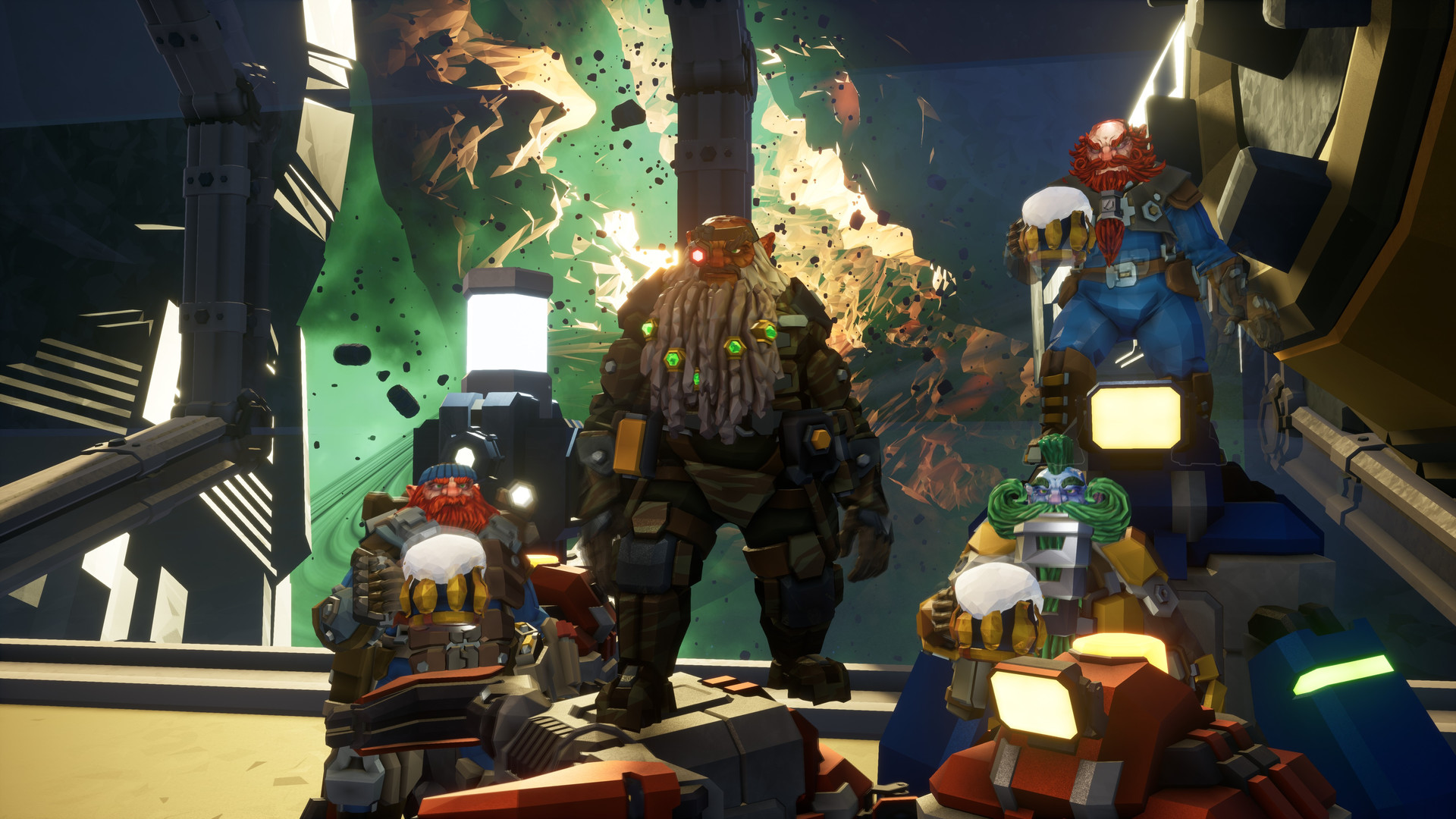
What is it? Left 4 Dead meets Minecraft in deep space
Expect to pay £25
Developer Ghost Ship Games
Publisher Coffee Stain Publishing
Reviewed on i7 9700K, 16GB RAM, RTX 2080 TI
Multiplayer? 4-player co-op
Link Official site
You’ve no doubt heard that Deep Rock Galactic is like Left 4 Dead, if Valve’s co-op classic swapped zombies for alien arachnids and took place exclusively in dark, confounding tunnels. That’s more or less accurate, but Deep Rock Galactic’s eponymous depth is more than just environmental. The breadth of approaches possible here makes Vermintide 2 look like Desert Bus, and frankly it’s all a bit much for the first few hours.
An opening tutorial mission does a fantastic job of conveying the basics, though—this is your pick, use it to hack away at valuable minerals and carve tunnels. Right. Cool. Shoot the gun on the bad spiders—with you there. Call the M.U.L.E to you and deposit mined resources, press 3 to equip a zipline launcher and 4 to toss a rechargeable shield. Mine the required materials, dump them in the M.U.L.E., call for evac, then make it out through your own haphazard tunnel network before the dropship leaves without you. (Once the payload’s on board your employers could care less about the fleshier elements of their workforce.)
This all makes sense within the confines of a friendly dummy run to get you up to speed, and in fact depicts a brilliant core loop that should feature in other 4-player first-person co-op games. I wish Vermintide 2 stole that brilliant dynamic shift of having to rush your way back out through a level, racing against a stern time limit and raising the stakes to absolute failure if you don’t make it out in time. I wish there was more of Deep Rock Galactic’s resource harvesting and persistent upgrades to Left 4 Dead, to punctuate all that mowing down walls of groaning undead and carrying the odd gas cans to and fro. And asymmetrical class-based co-op is always a treat when it’s balanced this thoughtfully.
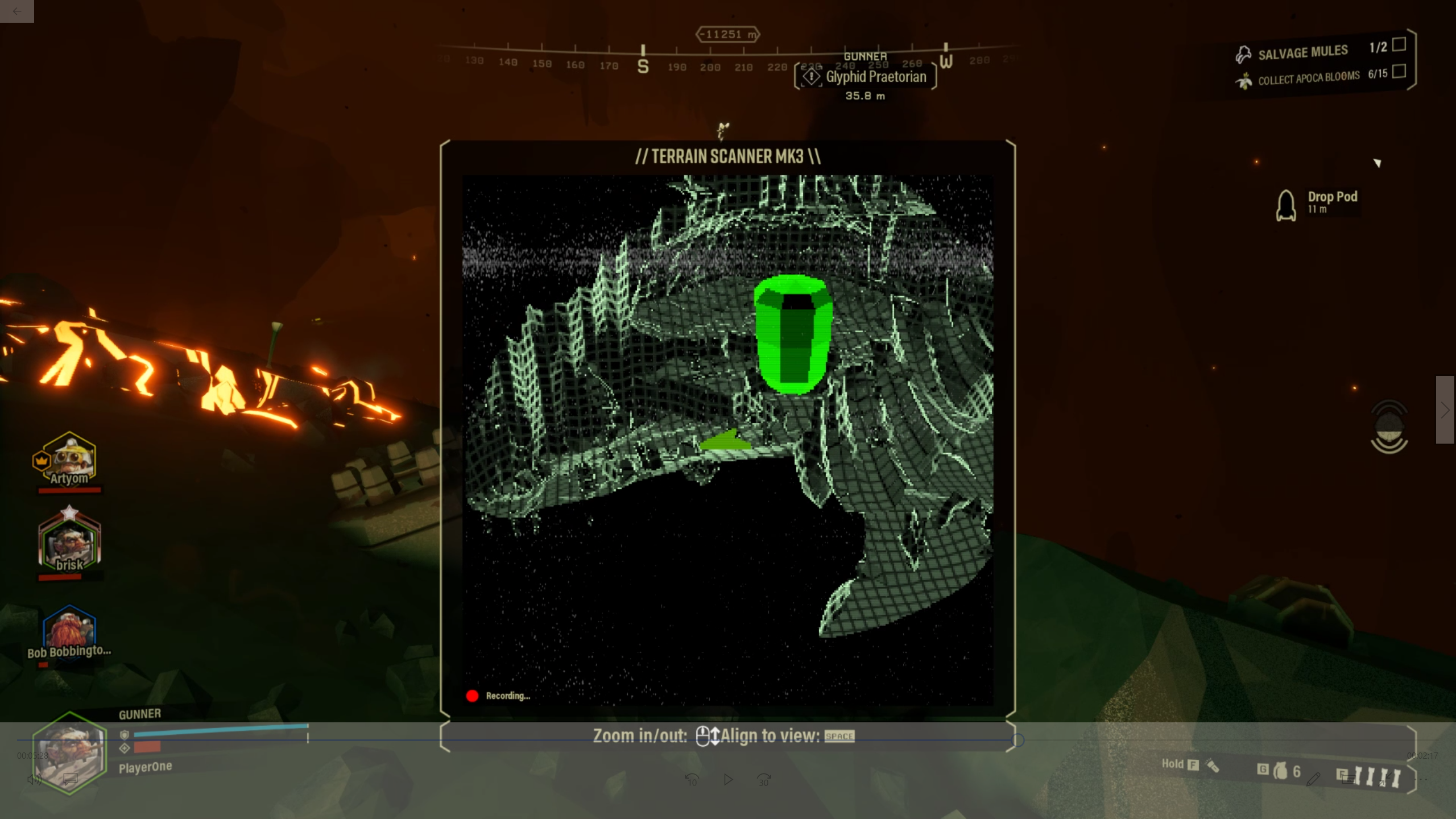
It’s a fascinating proposition, and Ghost Ship Games deserve the dedicated fanbase they’ve found through Early Access by marrying such demanding elements as destructible scenery, class-based co-op and procedurally generated cave networks. That’s not to say it’s much fun for a newcomer, though.
No, for a newcomer the core loop is less about mining, fending off waves of acid-gobbing spiders and then legging it to evacuation in a heroic final act, and more about periodically getting lost, trying to make sense of the admittedly cool low-fi 3D map, and making it back to your teammates where you’ll spend a golden 1-2 minutes feeling like part of the mission before getting lost again.
There are many prongs to this early game problem. One is the fact that every environment is not only destructible and procedural, but also demands that you deface it in order to reach lower levels where your more valuable mineral veins are inevitably located. There’s just no way for a level designer to ease the pathfinding, so the onus is 100% on the player.
Another is Deep Rock Galactic’s limited number of environmental identifiers in each biome—although more are still being added at a pretty fast rate in post-1.0 updates—which means one lugubrious cavern looks very much like another. In one of my first four or five missions I found myself walking around and around the same area which contained two large chambers of electrified blue crystals and the same variety of flower. I was never 100% sure whether I’d accidentally doubled back on myself.
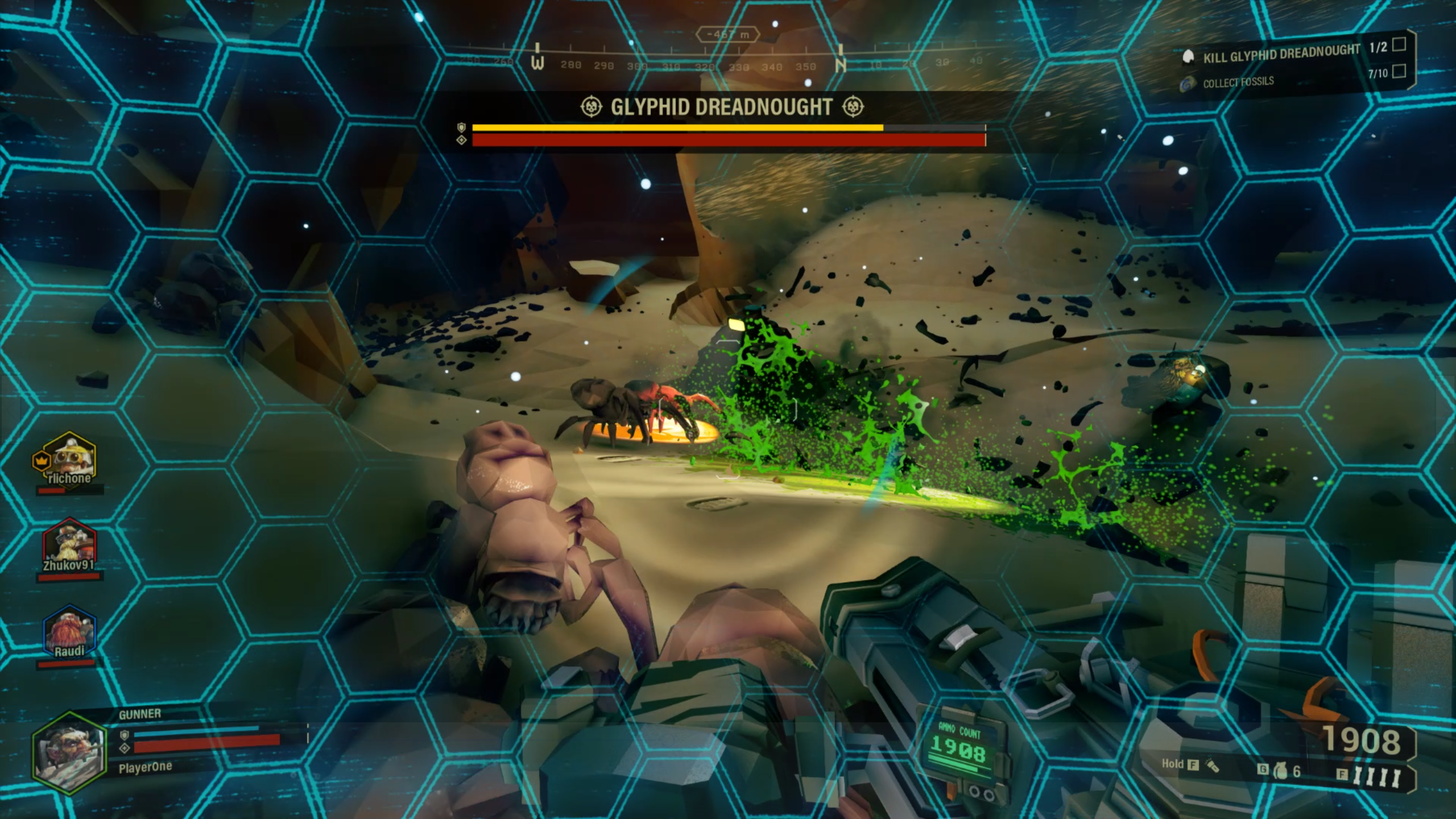
Finally there’s the aforementioned map, which mimics Ridley Scott’s Alien aesthetic brilliantly, but provides very little in the way of actually orienting you in your surroundings.
What encourages you to persevere is the sheer ingenuity of other players.
If it feels like I’ve spent a long time on why I got lost so often, it’s only because it’s a lone, glaring issue in an otherwise massively enticing formula. And it’s likely that many players won’t permeate that barrier.
What encourages you to persevere is the sheer ingenuity of other players. The experienced ones, who’ve been down in these caves since early Early Access, have a knack for turning befuddling topography into fairground rides with three ziplines and some well-placed pick-holes.
The division of labour between Deep Rock Galactic’s four classes—Gunner, Scout, Driller, Engineer—makes the spectacle of player ingenuity all the richer. In the same way you’d just stop and admire a particularly nifty sentry spot or teleporter placement in the early TF2 days, the engies here really show their worth with some well-considered defensive structure placements.
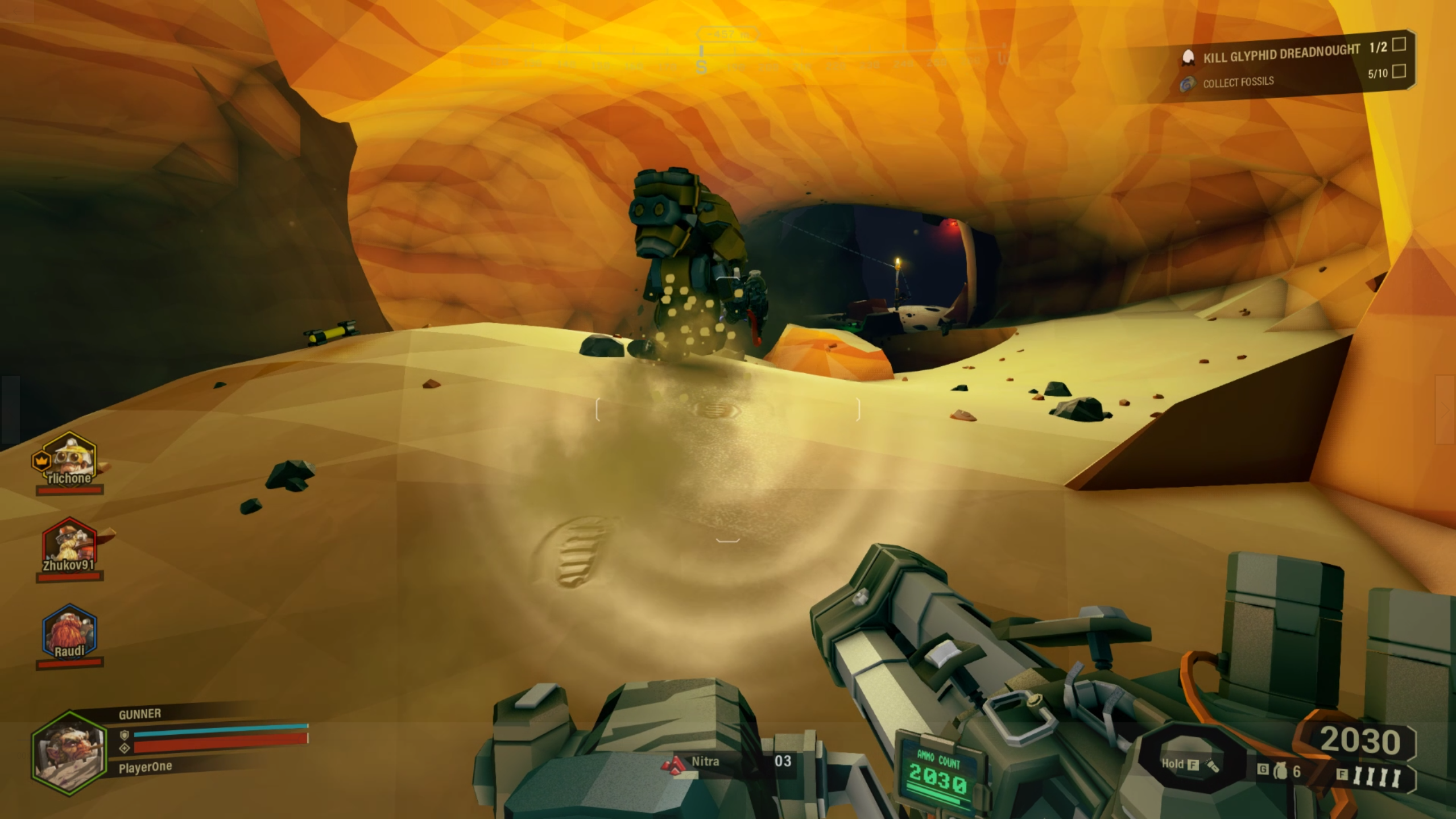
Having taken point on a wave of enemies during a thankless mission down the Crystalline Caverns as a gunner and taken the brunt of the assault alone, I returned to the Morkite vein we’d hit on minutes earlier. In the intervening minutes, the driller had carved a genuinely ornate staircase into the rock wall allowing access up there. Moments like that keep me playing Deep Rock Galactic.
All of which begs the question: does it work as a solo game? And the answer is a resounding “sort of”. When you embark on solo missions, you’re given a drone buddy, Bosco, to help with the shooting and reviving your nonexistent team-mates would otherwise be doing. Bosco, like literally every other facet of the game, however small, is upgradable, and he’s also pretty competent down at the coal face. You don’t feel there’s something conspicuously missing when you play on your own.
But without watching and, most importantly, learning from better players, it’s not the same game. There’s little antidote to the frustration of getting lost and it takes longer to figure out what you should actually be doing as each class. It becomes a game about spending resources and trying to max out upgrade trees—honestly, you should see the one for the pickaxe—instead of the intrinsic enjoyment of mastering a hostile cave network.
Solo or with fellow humans, Deep Rock Galactic is as much a game about learning the hard way and reaping the rewards as it is about dislodging alien terra firma. As such, it’s in danger of having many players simply bounce off it, but the hardcore who remain are rewarded with Mariana’s Trench levels of depth.
Read our review policy
A clear and distinct spin on 4-player co-op FPS with atmosphere, ingenuity… and real navigational problems.

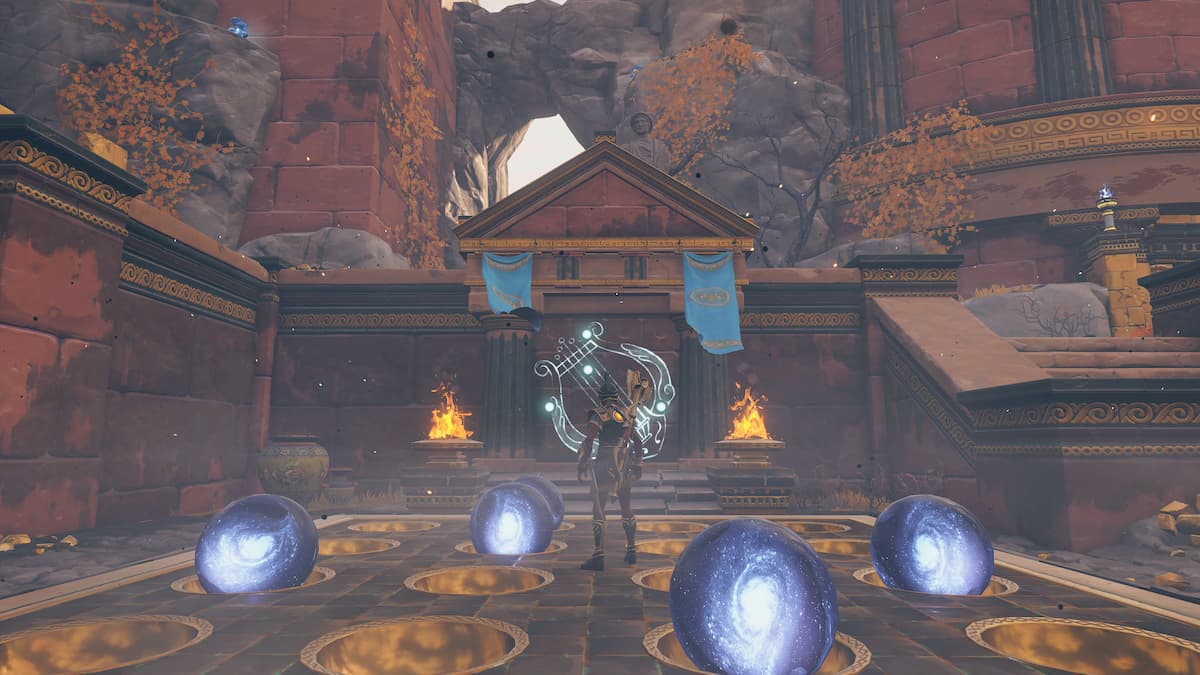
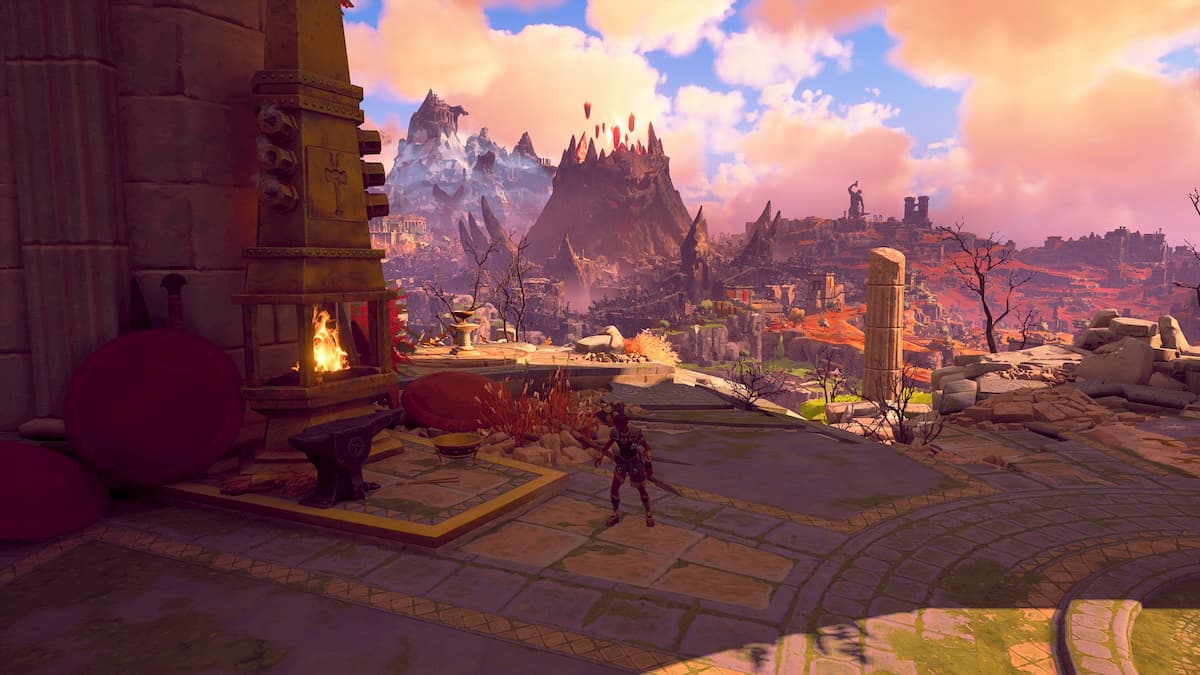
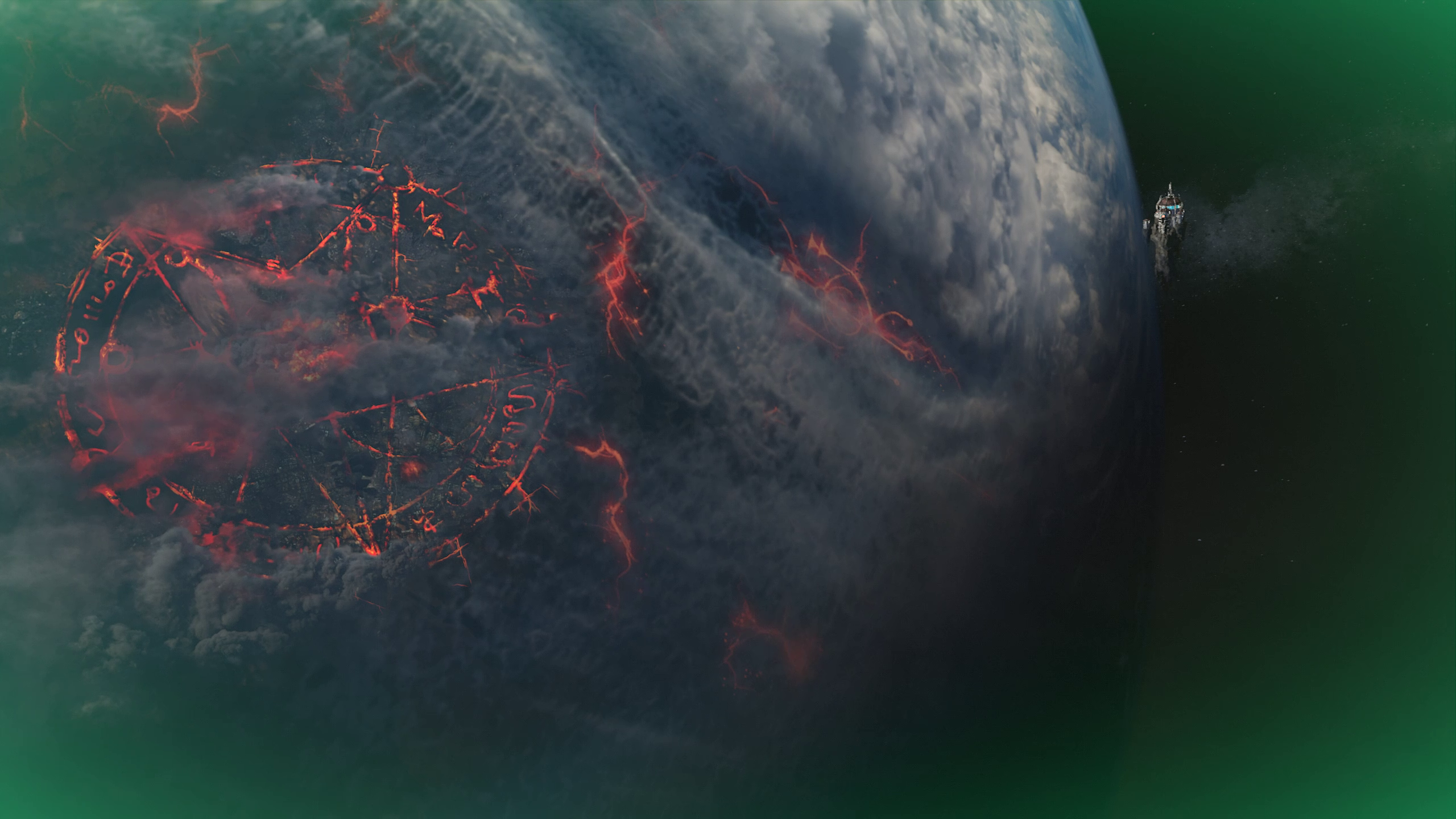
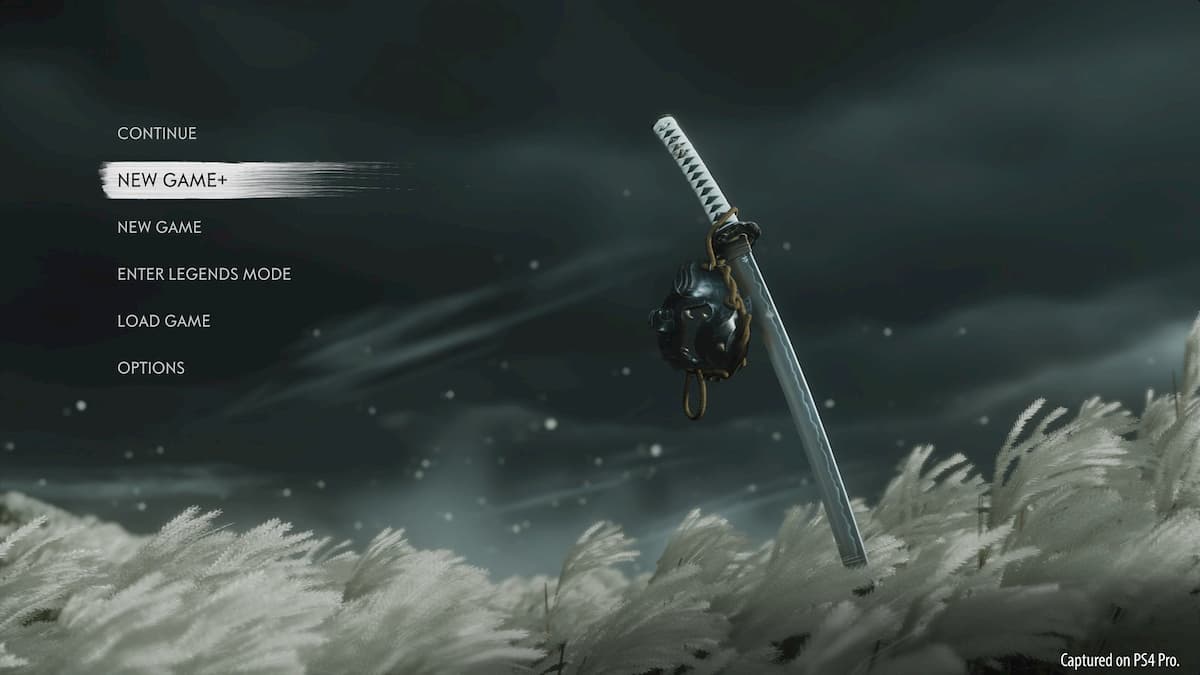


More Stories
Doom Eternal review
Review: The Last of Us Part II complicates the idea of right and wrong
Dirt 5 review